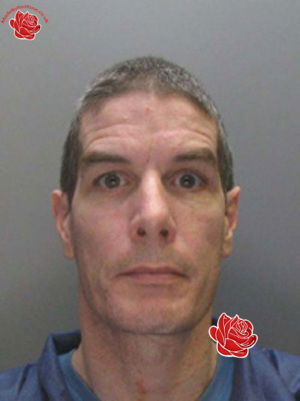Laura / luke Voyce's Social Media Accounts
Know a Social Media Account Linked to Laura / luke Voyce?
Want to add information? Log in to your account to contribute accounts and phone numbers.
LAURA VOYCE FROM KIRKBY ESCAPES JAIL AFTER DOWNLOAD OF CHILD PORNOGRAPHY IN MANCHESTER
In a case that has sparked widespread outrage, Laura Voyce, a 20-year-old transsexual woman from Kirkby, was spared immediate imprisonment after being convicted of possessing and downloading child pornography. The court proceedings revealed that Voyce, who was born male and previously went by the name Luke, faced the possibility of serving nine months in a male prison. This potential sentence was based on her conviction for 14 counts related to the illegal download of indecent images of children.Among the images found on Voyce’s laptop during a police search of her residence in Withington, Manchester, two years ago, four were classified as level four, indicating a high severity. These images depicted semi-naked children being subjected to abuse, a fact that added gravity to her charges. Despite the seriousness of the material, Judge Lesley Newton decided against sending Voyce to prison, citing concerns about her safety and the potential trauma of incarceration.
Instead, the judge imposed a suspended nine-month jail sentence, which will not be activated unless Voyce commits further offenses within the next year. Additionally, she was ordered to complete 100 hours of unpaid community service. Judge Newton expressed her belief that prison would be an “appalling experience” for Voyce, citing her gender transition process and the vulnerabilities associated with her current state.
Following the sentencing, reactions from children’s charities were swift and highly critical. Michelle Elliott, founder of Kidscape, condemned the decision, stating, “This ruling is absolutely absurd. It sends out entirely the wrong message that this transsexual’s feelings are more important than the emotions experienced by the children in these images who have gone through this terrible abuse. She should have gone to jail. There should be no special circumstances where child abuse is concerned.”
Details of the case emerged during the court hearing, where it was revealed that police had uncovered a stash of child pornography on Voyce’s computer during an investigation into another matter. The police had searched her home in Withington, Manchester, and found the illicit material. Voyce, who is engaged to be married, claimed that her viewing of the images was an attempt to come to terms with her troubled childhood, which was marked by gender insecurities, bullying, and feelings of isolation. Her defense lawyer, Kay Driver, argued that her client had suffered from gender-related insecurities that led to her being bullied and feeling disconnected from her own body. She also stated that Voyce maintained her innocence but acknowledged the harm caused by her actions.
Lawyers emphasized that if Voyce were to be imprisoned, she would likely be placed in a male facility, which could pose significant risks to her safety. The defense urged the court to consider her vulnerability and the potential dangers of incarceration in a male prison environment.
Judge Newton acknowledged that Voyce had downloaded the images for her own “perverted-sexual gratification,” but ultimately decided against jail time. She stated, “I take these offences very seriously; these are real children who are being abused so that people like you can look at them. Frankly, you deserve to go to prison, but I can’t bring myself to send you to prison, entirely because I think prison would be an appalling experience for you. I do not see how you could be kept safe in a prison environment with the best will in the world on the part of those who run such establishments.”
Voyce was ordered to sign the Sex Offenders’ Register for five years and was warned that any further legal violations would result in immediate imprisonment. A spokesperson from the Ministry of Justice clarified that transsexual individuals are eligible for custodial sentences if deemed appropriate by the court, with decisions regarding their placement in facilities made after comprehensive risk assessments based on individual circumstances.











